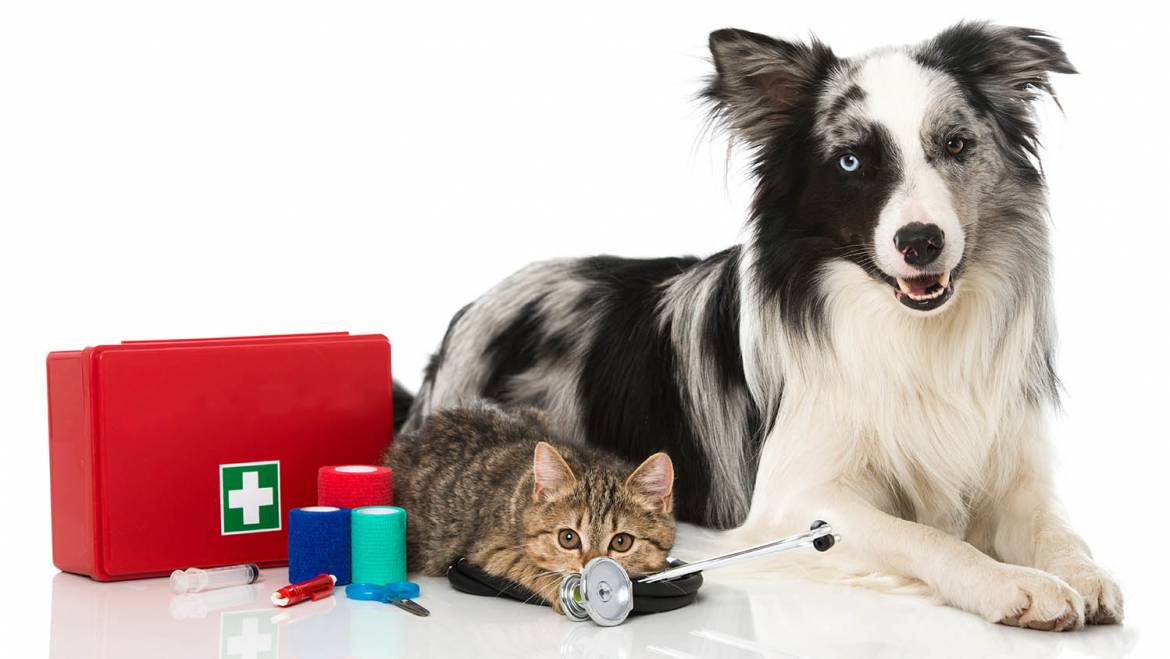DOCUMENTATION
Protect your pet’s important paperwork from getting wet by laminating it. Include:
- The name, phone number, address, and directions to both your regular veterinarian as well as an emergency vet clinic.
- List of medications and dosages, if your pet has a medical condition that requires regular treatment.
- Phone number for a Poison Control Centre.
MEDICATION
Ask your vet for help in putting together this part of your kit so that it can be customized specifically for your pet. It might include items like:
- Disinfectant and antibiotic ointment
- Sterile saline solution
- Ear cleaning solution
- Canine aspirin
- Hydrogen peroxide
- Activated charcoal
- Eye wash solution
- Anti-diarrhea medication
- Allergy medication
- Medication to relieve itching
TOOLS AND EQUIPMENT
- Muzzle
(make sure it’s a proper fit)
- Eye dropper
and oral syringe
- Tweezers
- Nail clippers
- Needle-nose pliers
- Scissors
- Nylon slip-leash
- Disposable gloves
- Clean towels
- Paper towels
- A large blanket, which can be used as a stretcher if you have to move your pet
- A second blanket to keep your pet warm
- Cold and heat packs (wrap in a towel – do not place directly against your pet)
BASIC MEDICAL SUPPLIES
- Roll of gauze (can be used to make a muzzle if needed)
- Sterile gauze pads
- Bandage rolls, such as Vet rap
- First aid tape
- Lubricant
- Cotton balls and swabs
- Styptic powder or pencil
- A product that discourages dogs from chewing or licking where the product is applied
- Nutritional supplements – ask your vet for suggestions.
ADDITIONAL FIRST AID TIPS
- Don’t give your pet human medication unless advised to do so by your veterinarian.
- Don’t give your dog medication that’s meant for cats, or vice versa.
- Always take precautions when handling an injured pet. Even the most gentle, sweet-natured pet may bite if it is hurt or scared.
- Know how to use the items in your first aid kit. Pet first aid courses can provide instruction. When possible, consult your vet first, particularly before administering medication.
- Periodically check the expiration dates on medications and replace them as necessary.
- Keep a portable crate next to your pet first aid kit.
- Keep your kit in an easily-accessible place in your home, and remember to take it with you when you travel with your pet, too! You can assemble a smaller pet first aid kit for use during travel if you wish.
Kritter Kastle is now serving Fond Du Lac, Green Lake, Rosendale, Oshkosh, Ripon areas and more! Have a question? Give us a call 1 (920) 872-1166
Reprinted from the PawFriendly website.
